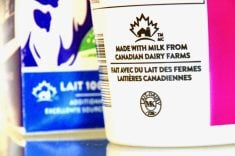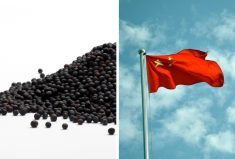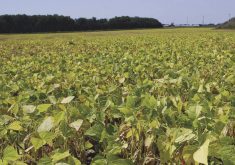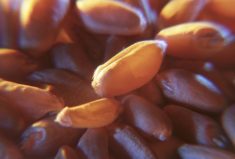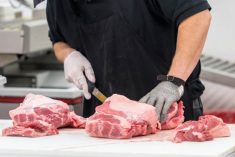Farm groups remain hopeful the next round of free trade talks between Canada and the European Union, scheduled for Oct. 18 to 22 in Ottawa, will bring some positive results.
The talks have yet to move beyond exploratory discussions.
A proposed agreement is seen as a possible boon for livestock and crop producers and a possible threat to supply management farmers. Until now, agriculture hasn’t attracted much attention in the talks, sources say.
Katherine Sullivan, executive director of the Canada Agri-Food Trade Alliance, says thus far the Europeans have only asked about increased access for dairy products.
Read Also

Mazergroup’s Bob Mazer dies
Mazergroup’s Bob Mazer, who helped grow his family’s company into a string of farm equipment dealerships and the main dealer for New Holland machinery in Saskatchewan and Manitoba, died July 6 from cancer.
“They’re not out to dismantle supply management,” she said. “Government procurement policies and access to financial and service industries is far more important to the EU than agriculture. Agriculture pales in comparison in importance.”
She also said the EU wants the provinces and territories to sign off on the deal to ensure that provincial procurement is covered.
Still, provinces with large agriculture sectors will be looking for real progress on agriculture issues such as access for beef and pork, resolution of disputes over low incidence of genetically engineered traits in crop shipments and an end to prohibitive tariffs and non-tariff barriers, she adds.
Ron Bonnett, president of the Canadian Federation of Agriculture, said the question for many producers is what will happen to the rich European subsidies on fruits, vegetables and wine, he says. “We hear lots about tariffs and quotas but we haven’t got into their domestic support.”
As well, there are non-tariff issues such as hormones in livestock and animal welfare rules, he said.
Peter Clark, an Ottawabased trade expert, thinks the EU isn’t really engaged in the talks. “They’ve not produced a request list or a demand list from us.” Canada will have a hard time gaining increased access for agriculture products because of European concerns about competition for their own producers as well as imports from other regions.
They will certainly push Canada for increased access for dairy products but not poultry products, he says. “Their biggest problem is fighting off poultry imports.”
One area that Canada might be able to capitalize on is the European desire for gains in acceptance of geographic indicators such as they have already achieved with champagne, he notes. Canada will have to find out how far they’re prepared to push this issue.







